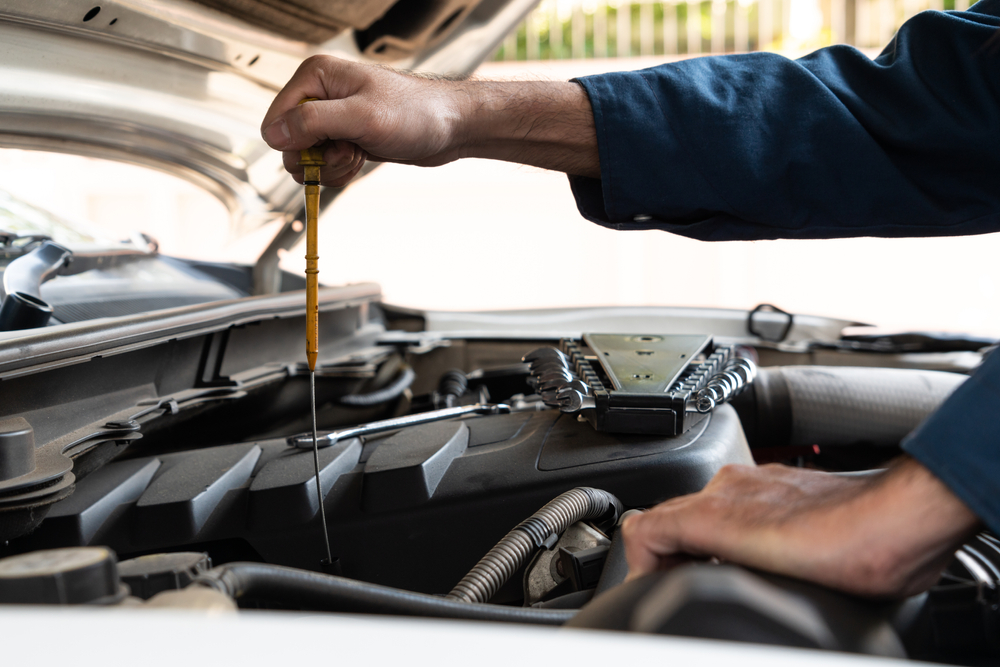Avoid Accidents and Claims by Maintaining Your Vehicle
Road accidents can cause significant financial loss, injuries, and fatalities. Even if you have the best driving skills, there are many factors outside of your control that can lead to accidents. However, one thing that is within your control is the regular maintenance and inspections of your vehicle. Keeping your vehicle in good condition can reduce the risk of accidents and insurance claims.
 It’s important to note that every vehicle is slightly different in terms of its repair and maintenance schedules. You can often find your vehicle’s specific schedule in your owner’s manual. It will go over what is to be done at approximately what mileage. If you don’t have an owner’s manual, you can ask the manufacturer for this information. However, the following are general maintenance issues that need to be addressed regularly:
It’s important to note that every vehicle is slightly different in terms of its repair and maintenance schedules. You can often find your vehicle’s specific schedule in your owner’s manual. It will go over what is to be done at approximately what mileage. If you don’t have an owner’s manual, you can ask the manufacturer for this information. However, the following are general maintenance issues that need to be addressed regularly:
1. Regular Oil Changes
Regular oil changes are crucial to the health of your vehicle’s engine. Dirty oil can cause the engine to overheat, leading to engine failure and breakdown. By changing the oil filter regularly, you can keep the engine running smoothly and avoid costly repairs. Vehicles have different time frames for when you need to have your oil changed. According to AAA, most modern engines will require changing between 5,000 and 7,000 miles. However, some vehicles can go longer. Of course, checking your oil levels on a regular basis, say weekly, is always a good decision.
2. Brake Inspections
Brakes are one of the most critical safety features of your vehicle. Regular inspections of your brake system can help identify any issues before they become more severe. After all, you never want to face a situation where you are unable to stop your forward progress in your vehicle. This is especially true if you are in heavy traffic or coming down a steep grade.
3. Tire Maintenance
When you think about it, tires are the only part of your vehicle that comes into contact with the roadway. Consequently, they are in essence your vehicle’s connection to the road and the foundation of all your stability and safety. Therefore, it’s vitally important to practice proper tire maintenance, such as regular rotations and inflation checks. This will promote good traction and also reduce the risk of blowouts while driving, which can be extremely dangerous and scary. In addition to preventing all these negative consequences, keeping your tires in good condition will also improve your fuel efficiency, saving you money. In fact, according to the U.S. Department of Energy, keeping your tires properly inflated can improve your gas mileage by up to 3% but average a 0.6% savings.
4. Electrical System Inspection
The electrical system in your car is responsible for controlling many critical components, such as lights, wipers, and signals. When you have regular inspections of the electrical system performed, this can help identify any issues before they lead to more serious problems like crucial failures. This will help you stay safer on the road.
5. Suspension And Steering Maintenance
The suspension and steering systems in your vehicle are responsible for keeping your ride smooth and stable. Without them working properly, you can easily lose control of your vehicle. If this happens at an inopportune time, it can cause serious damage, if not worse, and lead to a traffic accident. Therefore, you want to ensure that your vehicle is in good condition as it relates to its suspension and steering.
6. Insurance Discounts
Many insurance companies offer discounts for vehicles that have been regularly maintained and inspected. By taking advantage of these discounts, you can save money on your insurance premiums while simultaneously ensuring your vehicle is in good condition.
Signs to Look for Indicating You Need to Have Something On Your Car Serviced
While the above information includes maintenance items you need to stay on top of even without evidence of a failure, the following are some indications that you need to address something now and should not be put off any longer according to Kelley Blue Book:
Signal Lights: The presence of a service engine soon or check engine light obviously indicates there is a problem within the engine that needs to be addressed now, not later.
Shifting Issues: Today’s automatic vehicles are designed to seamlessly shift between gears. If you are noticing lurching or shifting that is harder than normal, this might indicate that your vehicle is experiencing a problem with its transmission.
Brakes: As mentioned above, brakes are vitally important for the safety of your vehicles. Noting any brake issues like scraping or squeaking sounds or feeling a “soft” brake means you need to address this issue as soon as possible.
Less Fuel Efficiency: Leaky fuel injectors or bad sensors can cause changes in your gas mileage. It’s important to know your regular fuel efficiency so you can recognize if there is a reduction in this number, which could indicate a problem.
Difficulty Starting or Stalling: If you are having trouble getting your car started or are noting your vehicle stalls during operation, this could indicate it’s time to take it in for service.
Vibration: Noting that your vehicle is vibrating when stopping, turning, or starting, can mean there is an issue that needs to be addressed.
Lack of Acceleration: If your cars get up and go has got up and gone, it could indicate its time for an engine tune-up.
Contact us Today
In conclusion, regular maintenance and inspections are essential to keeping your vehicle in good condition and reducing the risk of accidents and insurance claims. By following a regular maintenance schedule and conducting inspections regularly, you can ensure that your vehicle stays safe and reliable on the road. Contact us at Arnold Insurance to learn more about insurance coverage for your vehicle. 


